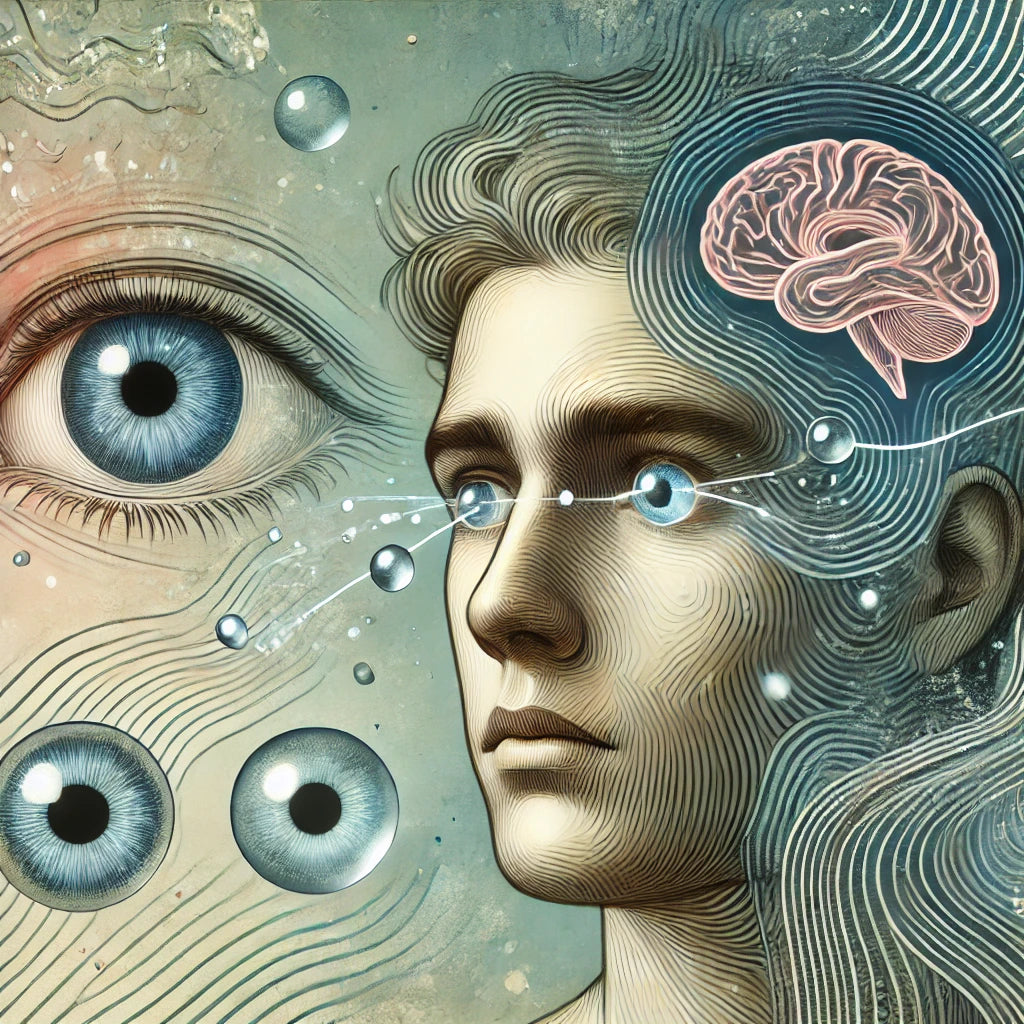When it comes to mental health, most of us are aware of the common symptoms like anxiety, depression, and stress. But did you know that your mental well-being can also affect your physical health, particularly your vision? One surprising manifestation of this connection is eye floaters—those tiny spots, specks, or cobweb-like shapes that drift across your field of vision. In this blog post, we'll explore the relationship between mental health and eye floaters, including the impact of anxiety, stress, and Obsessive-Compulsive Disorder (OCD), and what you can do to manage this condition effectively.
Understanding Eye Floaters
Eye floaters are small clumps of cells or strands of collagen that form in the vitreous, the clear gel-like substance that fills the inside of your eye. As we age, the vitreous gradually shrinks, creating these floaters that cast shadows on the retina, causing the appearance of floaters in your vision.
For many people, floaters are a normal part of aging and are generally harmless. However, in some cases, a sudden increase in floaters or flashes of light may indicate a more serious condition, such as a retinal detachment, which requires immediate medical attention.
The Mental Health Connection
While eye floaters are primarily a physical phenomenon, research has shown that mental health can play a significant role in how we perceive and cope with them. Stress, anxiety, and even depression can heighten our awareness of floaters, making them seem more prominent and bothersome. Obsessive-Compulsive Disorder (OCD) can also exacerbate the experience of eye floaters, leading to increased distress and obsession over their presence.
Here's how mental health, including OCD, and eye floaters are connected:
-
Heightened Awareness: When we're stressed, anxious, or struggling with OCD, our nervous system becomes more sensitive to external stimuli. This heightened state of alertness can make us more aware of the floaters in our vision, causing them to appear more frequently or more prominently.
-
Psychosomatic Effects: Anxiety, stress, and OCD can cause physical symptoms such as headaches, dizziness, and blurred vision. These symptoms can exacerbate the perception of floaters, creating a vicious cycle where mental health issues worsen the floaters, and the floaters, in turn, increase mental distress.
-
OCD and Hyperfocus: For individuals with OCD, the presence of floaters can become an obsessive focus. They may spend excessive time fixating on the floaters, which can lead to increased anxiety, difficulty concentrating on other tasks, and a significant impact on daily life. This hyperfocus can create a feedback loop, where the more attention is paid to the floaters, the more bothersome they become.
-
Impact on Daily Life: For some individuals, the presence of floaters can become a source of significant distress, leading to increased anxiety, difficulty concentrating, and even depression. This can affect work, social interactions, and overall quality of life.
Managing Eye Floaters and Mental Health, Including OCD
If you're experiencing eye floaters and find that they are impacting your mental well-being, it's important to address both the physical and psychological aspects of the condition. Here are some strategies that can help:
-
Consult an Eye Specialist: The first step is to visit an eye care professional to rule out any serious underlying conditions. Regular eye exams are crucial for monitoring your eye health and ensuring that floaters are not a sign of a more severe issue.
-
Practice Stress Management: Since stress and anxiety can exacerbate the perception of floaters, incorporating stress-relief techniques into your daily routine is essential. Techniques such as deep breathing, meditation, and mindfulness can help calm your nervous system and reduce the impact of stress on your vision.
-
Focus on Overall Eye Health: Maintaining a healthy lifestyle that supports eye health can also help manage floaters. This includes a balanced diet rich in vitamins and minerals like lutein, zeaxanthin, and vitamin C, regular exercise, and staying hydrated.
-
Cognitive Behavioral Therapy (CBT): If anxiety, OCD, and stress related to floaters are significantly affecting your life, consider seeking the help of a mental health professional. CBT is an effective therapy that can help you manage anxiety and OCD by changing negative thought patterns and behaviors.
-
OCD-Specific Strategies: For individuals with OCD, it’s important to work with a therapist who specializes in OCD treatment. Techniques such as Exposure and Response Prevention (ERP) can help you gradually reduce the obsessive focus on floaters and lessen the anxiety associated with them.
-
Consider Supplements: Some studies suggest that certain supplements, like those containing antioxidants and other nutrients, may help maintain eye health and reduce the impact of floaters. For example, Haro Clear, a supplement from Haro Health, is designed to support eye health with ingredients like lutein and zeaxanthin, which are known for their protective effects on the eyes.
Conclusion
Eye floaters, while often harmless, can become a significant source of distress, especially when linked to mental health issues like anxiety, OCD, and stress. By understanding the connection between your mental health and the perception of floaters, you can take proactive steps to manage both aspects. Remember to consult with healthcare professionals for a comprehensive approach to treatment, incorporating both eye care and mental well-being into your routine. With the right strategies, you can reduce the impact of floaters on your life and maintain both your vision and mental health.


